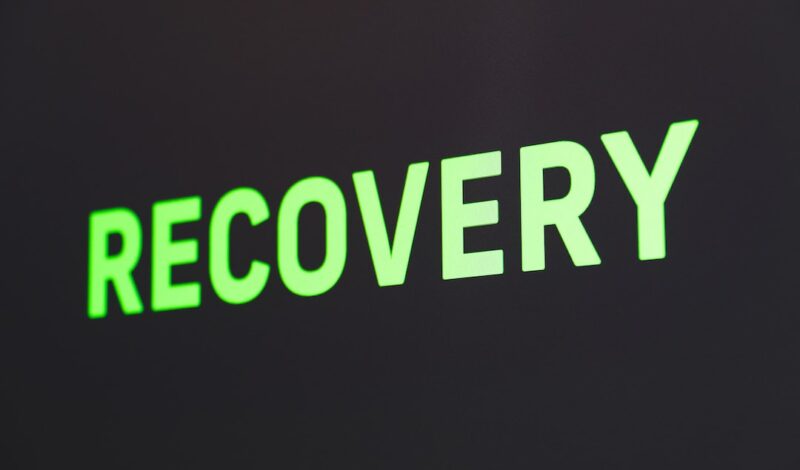Overview of the Marchman Act
The Marchman Act, enacted by the Florida legislature in 1993, was designed as a lifeline for individuals grappling with substance abuse issues. This law provides a legal mechanism for family members and other concerned parties to seek intervention and treatment for their loved ones who may be in denial or resistant to help. The Marchman Act has since become an essential tool in Florida’s battle against addiction, ensuring that those in need have access to help, even when they cannot recognize the need themselves.
The Marchman Act is named after Hal S. Marchman, a former Florida legislator, who championed the cause of addiction treatment. It was created in response to the growing recognition of the devastating impact of substance abuse on individuals and communities. The Act aims to protect the rights of individuals struggling with addiction while also recognizing the need for immediate intervention and treatment.
One of the key aspects of the Marchman Act is that it allows concerned individuals, such as family members, friends, or healthcare professionals, to petition the court for involuntary assessment and stabilization of an individual who is believed to be a danger to themselves or others due to substance abuse. This involuntary assessment and stabilization period ensures that individuals can receive the necessary treatment and support, even if they are initially resistant to it.
Rights under the Marchman Act
Under the Marchman Act, individuals have several rights that are designed to protect their interests and dignity during an undoubtedly difficult time. One of the most significant rights is that of requesting an assessment for substance abuse, allowing individuals to take proactive steps towards their recovery. This right empowers individuals to recognize their addiction and seek help, even if they may initially be in denial or resistant to treatment.
Furthermore, the Act ensures the right to due process, including legal representation, which ensures that the individual’s legal rights are upheld throughout the proceedings. This right is crucial in safeguarding individuals from any potential violations or abuses of power. Legal representation can provide individuals with guidance, support, and advocacy, ensuring that their voices are heard and their rights are protected.
Additionally, individuals have the right to choose a treatment facility that best meets their needs, fostering a more personalized approach to recovery. This right recognizes that there is no one-size-fits-all solution to addiction treatment and that each individual’s journey to recovery is unique. By allowing individuals to choose the treatment facility that aligns with their preferences, values, and specific needs, the Marchman Act promotes a more individualized and holistic approach to recovery.
For example, suppose an individual struggling with substance abuse believes that a residential treatment program would be most beneficial for their recovery journey, while another individual prefers an outpatient program that allows them to maintain their daily responsibilities. In that case, the Marchman Act empowers both individuals to make choices that align with their preferences and needs.
Responsibilities under the Marchman Act
With rights come responsibilities, and the Marchman Act is no exception. Individuals subjected to the Act are required to comply with court orders, adhere to their treatment plans, and participate in progress evaluations. These responsibilities are crucial for the individual’s recovery journey, as they ensure that individuals actively engage in their treatment and take the necessary steps towards sustainable sobriety.
By complying with court orders, individuals demonstrate their commitment to their recovery and their willingness to follow the guidance of the court and treatment professionals. This responsibility helps to establish a structured and supportive environment that is conducive to the individual’s healing and growth.
Adhering to treatment plans is another essential responsibility under the Marchman Act. Treatment plans are designed to address the unique needs and challenges of each individual, providing them with the necessary tools, therapies, and support systems to overcome their addiction. By actively participating in their treatment plans, individuals can maximize the benefits of their recovery journey and increase their chances of long-term sobriety.
Additionally, participating in progress evaluations allows individuals and their treatment providers to assess the effectiveness of the treatment plan and make any necessary adjustments. These evaluations help to track the individual’s progress, identify areas of improvement, and ensure that the treatment approach remains tailored and effective.
For example, if an individual’s progress evaluation reveals that they are struggling with a specific aspect of their recovery, such as managing triggers or maintaining healthy relationships, the treatment team can collaborate with the individual to modify the treatment plan accordingly. This collaborative approach empowers individuals to actively engage in their recovery and take ownership of their healing process.
Families, too, have an important role to play under the Marchman Act. They are responsible for providing evidence for involuntary assessment and treatment petitions, a task which can be emotionally challenging but is necessary for the initiation of the Marchman Act process. By gathering and presenting evidence of the individual’s substance abuse and the potential danger it poses, families contribute to the overall objective of facilitating intervention and treatment for their loved ones.
The responsibility of providing evidence requires families to gather relevant information, such as documented instances of substance abuse, behavioral changes, and the impact of addiction on the individual’s overall well-being. This evidence serves as a basis for the court’s decision-making process and helps to demonstrate the necessity of intervention and treatment.
For example, a family may provide documented instances of their loved one’s substance abuse, such as police reports or medical records, to support their petition for involuntary assessment. They may also present testimonies from healthcare professionals or other witnesses who have observed the negative consequences of the individual’s addiction. By fulfilling this responsibility, families actively contribute to the initiation of the Marchman Act process and the overall well-being of their loved ones.
Overall, the rights and responsibilities under the Marchman Act work in tandem to ensure the effective intervention and treatment of individuals struggling with substance abuse. Upholding rights empowers individuals to take ownership of their recovery journey, while meeting responsibilities ensures their active engagement in the treatment process. The Marchman Act recognizes that addiction is a complex issue that requires a multi-faceted approach, involving both legal protections and personal responsibilities.
Call Today
Need an Experienced Criminal Defense and Marchman Act Attorney? Contact Michael T. Rabideau Today!
Michael T. Rabideau is a highly experienced trial attorney specializing in Criminal Defense and Marchman Act cases across South Florida. With offices in West Palm Beach, Wellington, and Boca Raton, he has helped countless individuals fight criminal charges and get court-ordered addiction treatment for loved ones.
If you or a family member is facing criminal charges, don’t risk your future on an inexperienced lawyer. Michael T. Rabideau has successfully defended clients against a wide array of charges including DUI, drug crimes, theft, domestic violence, and more. His deep knowledge of the legal system and advocacy skills consistently lead to the most favorable outcomes for his clients.
Additionally, if substance abuse is tearing your family apart, the Marchman Act allows relatives and friends to legally intervene and get court-ordered assessment, detox, and rehabilitation for addicts. Michael T. Rabideau has extensive experience filing Marchman Act petitions to help break the cycle of addiction and give people their lives back.
Michael Rabideau practices in the following areas of law in addition to assisting families and loved ones with a Marchman Act:
— Assault & Battery
— Child Abuse & Child Neglect
— Computer Crimes
— Domestic Violence
— Driving Violations
— Drug Crimes Lawyer
— DUI
— Expungements
__ Federal Crimes
— Firearms Offense
— Fleeing & Eluding
— Hit & Run
— Juvenile Crimes
— Manslaughter
— Marijuana Possession Lawyer
— Murder
— Probation Violations
— Resisting Arrest
With convenient office locations, competitive rates, and a commitment to personalized service, Michael T. Rabideau is the attorney you want on your side. Don’t wait to get the strong legal defense you deserve. Contact him today at (561) 820-4848 for a free case review. Justice delayed is justice denied. Call now!







